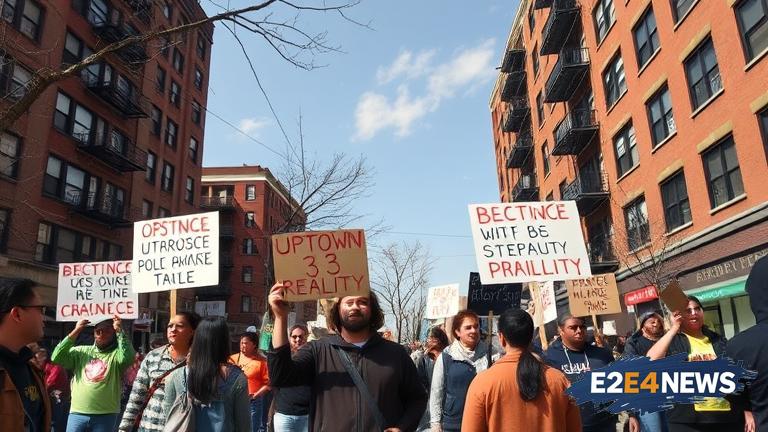In a bold display of solidarity, tenants from Chicago’s Logan Square and Uptown neighborhoods gathered to protest against 33 Realty, a property management company accused of imposing exorbitant rent hikes and neglecting maintenance. The rally, which drew a sizable crowd, aimed to bring attention to the plight of renters who feel exploited by the company’s practices. With chants and signs, protesters voiced their discontent, demanding fair treatment and affordable housing. The demonstration was organized by local tenant unions and advocacy groups, who claim that 33 Realty has consistently disregarded the needs of its tenants. According to protesters, the company has raised rents by as much as 30% in some cases, pricing out long-time residents and small businesses. Furthermore, tenants have reported substandard living conditions, including mold, pest infestations, and inadequate heating. The protesters argue that 33 Realty’s actions are part of a larger trend of gentrification in Chicago, where wealthy investors are buying up properties and pushing out low-income and minority communities. The rally was attended by local politicians, who expressed support for the tenants and pledged to work towards finding solutions to the city’s affordable housing crisis. Some protesters also criticized the city’s current rent control laws, which they say are insufficient to protect tenants from predatory landlords. The demonstration was peaceful, with police presence minimal. As the protest came to a close, organizers vowed to continue the fight for tenants’ rights, promising further action and mobilization in the coming weeks. The issue has sparked a wider debate about the role of private property management companies in Chicago and the need for stronger regulations to protect tenants. With the city’s affordable housing stock dwindling, the protest highlights the urgent need for policy changes to address the crisis. Tenants and advocates are calling for increased funding for affordable housing initiatives, as well as stricter enforcement of existing laws. The protest also underscores the importance of community organizing and collective action in bringing about change. As one protester noted, ‘We will not be silenced or ignored. We demand justice and fairness for all tenants in Chicago.’ The rally has garnered significant attention on social media, with many users expressing solidarity with the protesters and sharing their own experiences with 33 Realty. The company has yet to respond to the allegations, but the protest has already sparked a wider conversation about the need for affordable housing and tenants’ rights in Chicago. In the coming days, organizers plan to meet with city officials to discuss potential solutions and push for policy reforms. The protest is part of a larger movement to address the city’s affordable housing crisis, which has been exacerbated by years of disinvestment and neglect. By standing together, tenants and advocates hope to create a more just and equitable housing system for all Chicagoans. The fight for affordable housing is far from over, but the protest marks an important step towards creating a more sustainable and community-driven approach to housing in Chicago. As the city continues to grow and evolve, it is essential that the needs of all residents are taken into account, particularly those who are most vulnerable to exploitation and displacement.
